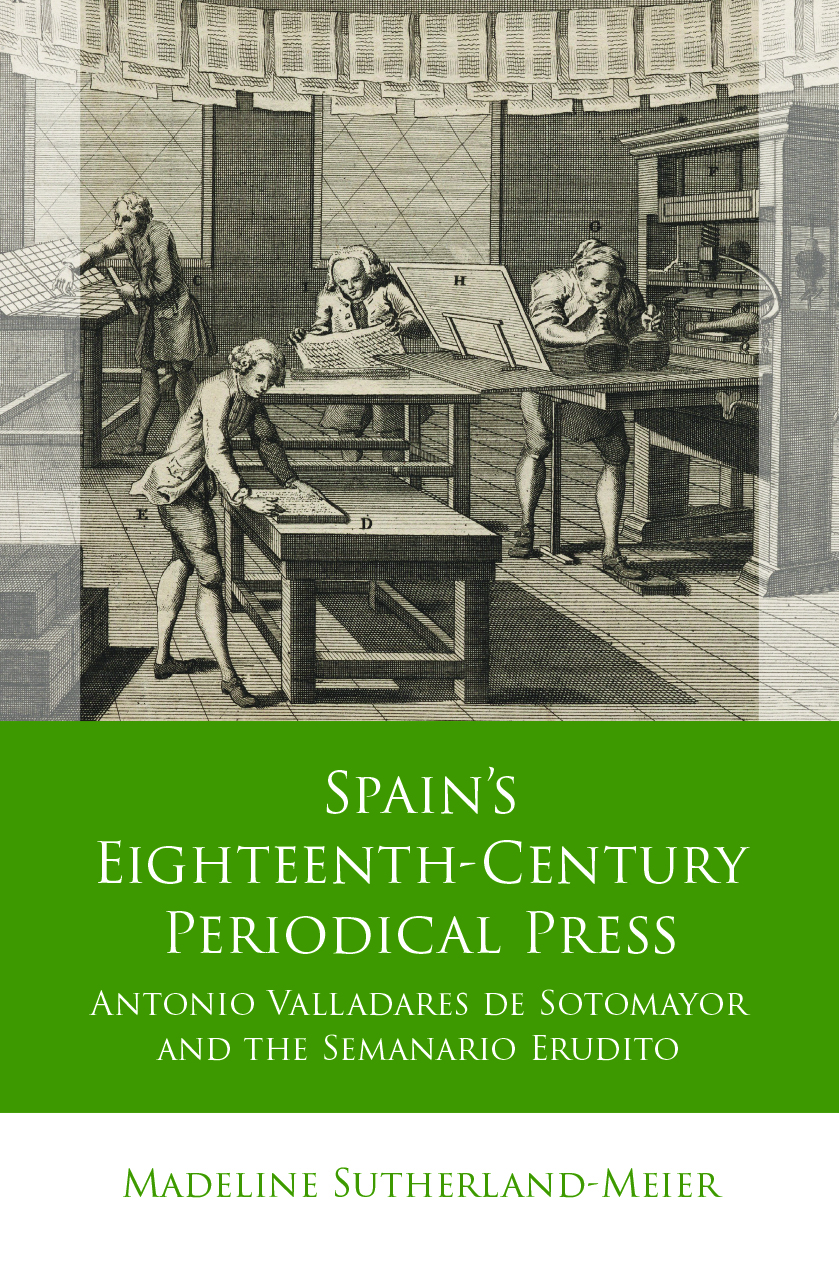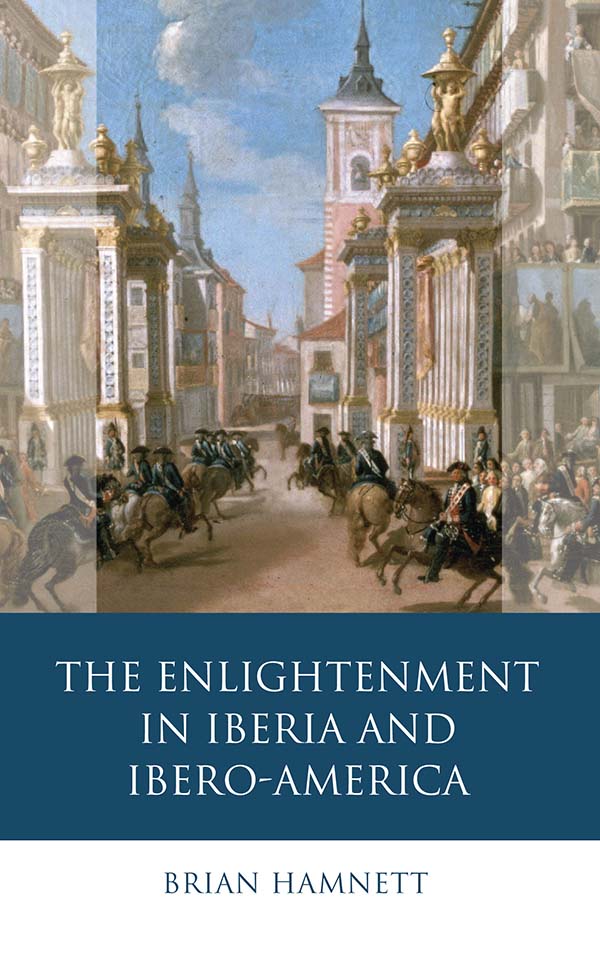Spain's Eighteenth-Century Periodical Press
Antonio Valladares de Sotomayor and the Semanario Erudito
Author(s) Madeline Sutherland-Meier
Language: English
Genre(s): Literary Criticism, History
Series: Iberian and Latin American Studies
- March 2025 · 288 pages ·216x138mm
- · Hardback - 9781837722075
- · eBook - pdf - 9781837722082
- · eBook - epub - 9781837722099
This is the first monographic study of the Semanario Erudito, one of the most important learned periodicals of late eighteenth-century Spain. Its editor, Antonio Valladares de Sotomayor (1737–1820), sought to recover the history of Spain and, through his periodical, instruct his readers. The book begins by discussing Valladares’s life and works; he was a prolific and popular dramatist, as well as a professional editor of books and other periodicals. Documents from Spain’s Archivo Histórico Nacional inform the next two chapters, which examine the periodical’s history; these chapters treat the censorship process, as well as the printers, sellers and
readers of the Semanario. The book’s second half looks at what Valladares published – reformist tracts by arbitristas and proyectistas, reflections on the monarchy and the role of privados, writings by eighteenth-century figures such as Macanaz, Burriel, Mayans and Sarmiento – and suggests why he might have selected particular texts for his readers.
'Antonio Valladares de Sotomayor spent his life, talent and resources fighting for Spain’s Enlightenment. He worked to keep a broad public informed and to answer two fundamental questions: what are the causes of Spain's underdevelopment, and how can Spain elevate itself to the level of its European (enlightened) neighbours? This book tracks Valladares’s efforts through his major publication, the Semanario Erudito (1787–91), and reveals the contours of the many controversies and problems faced by liberal thinkers in the late eighteenth century. Valladares’s achievement was significant – so too is Sutherland-Meier’s in this excellent and compelling study.’
Emeritus Professor David T. Gies, University of Virginia
Part IValladares and the Semanario Erudito
The Life and Works of Antonio Valladares de Sotomayor
Early Years, Early Works
Writing for the Theatre
A Temporary Stay in Osuna
The Economics of Writing and the Move to Editing
Hard Times in the 1790s
The Peninsular War and a Return to the Theatre
1818: An Investigation by the Inquisition and an Appeal to the King
Final Years and Final Projects
The Semanario Erudito
The Early History of the Semanario Erudito
The Prospecto
Valladares and Antonio de Sancha: Publishers with a Common Purpose
The Publication and Distribution of the Semanario Erudito
The Decree of 1791 and After
1816: The Nuevo Semanario Erudito
The Law, the Censors, the Consejo de Castilla and the Semanario Erudito
Laws Regulating the Periodical Press in the Eighteenth Century
The Censors
The Censors’ Recommendations and the Consejo’s Decisions
April 1788: A Contretemps with the Authorities
Conclusions: The Role of the Censors, a Confluence of Interests
Part IIRecovering the History of Spain
Introduction: Examining Valladares’s Archive
Assembling the Archive
What Did the Archive Contain?
Recovering the History of the Seventeenth Century
Introduction
Eye-Witness Reporting: Quevedo, Almansa y Mendoza, Pellicer de Tovar
The Spanish Monarchy: Palafox’s ‘Juicio interior’ and the Anonymous Memorias históricas de la monarquía de España
Royal Correspondence: Letters of the Conde Duque de Olivares, Queen Mariana, Don Juan de Austria and the Duque de Alba
Writings of the Arbitristas and the Proyectistas
The Arbitristas: Diagnosing and Curing Spain’s Ills
The Eighteenth-Century Heirs of the Arbitrista Tradition: The Proyectistas
Eighteenth-Century Writers: Martín Sarmiento, Andrés Burriel, Gregorio Mayans y Siscar
Writings by Padre Martín Sarmiento
Letters of Andrés Burriel
Gregorio Mayans y Siscar: Correspondence and Other Writings
Conclusion and Reflections



